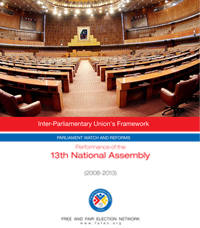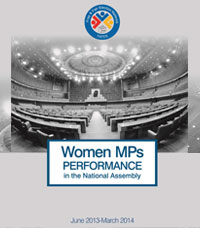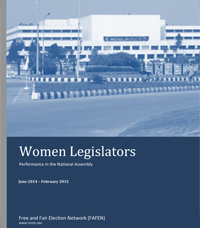The 13th National Assembly brought yet another transition to democracy in Pakistan. Pakistan faced uncertainty and lingering political instability from 2008 to 2013. The defining feature of this period in Pakistan’s history was the executive-judiciary tussle. President Zardari, who took over as a civilian President from General Musharraf in 2008, did not initially restore the sacked higher judiciary. It was eventually done due to the intense mobilization of the lawyers and opposition political parties. However, seeds of the executive-judiciary tussle mushroomed into political instability. It forms the backdrop to the way the 13th National Assembly functioned and completed its tenure.
The judiciary took the executive to task by nullifying the National Reconciliation Ordinance (NRO) passed by the previous Musharraf government. The Supreme Court also dismissed the elected PPPP Prime Minister Yousaf Raza Gillani in June 2012 over contempt of court charges for not writing a letter to Swiss authorities regarding corruption cases of President Zardari. However, despite the intense executive-judiciary tussle, 13th National Assembly was highly productive in terms of its legislative output.
The 13th National Assembly passed 135 bills in its five years tenure; 116 were government bills and 19 were private members bills. Out of total of 135 bills, 61 were amendments to laws. Passage of 135 bills is a mammoth legislative achievement and the 13th National Assembly could be ranked amongst the best performing parliaments in terms of its legislative contribution.
To download this report, click here




